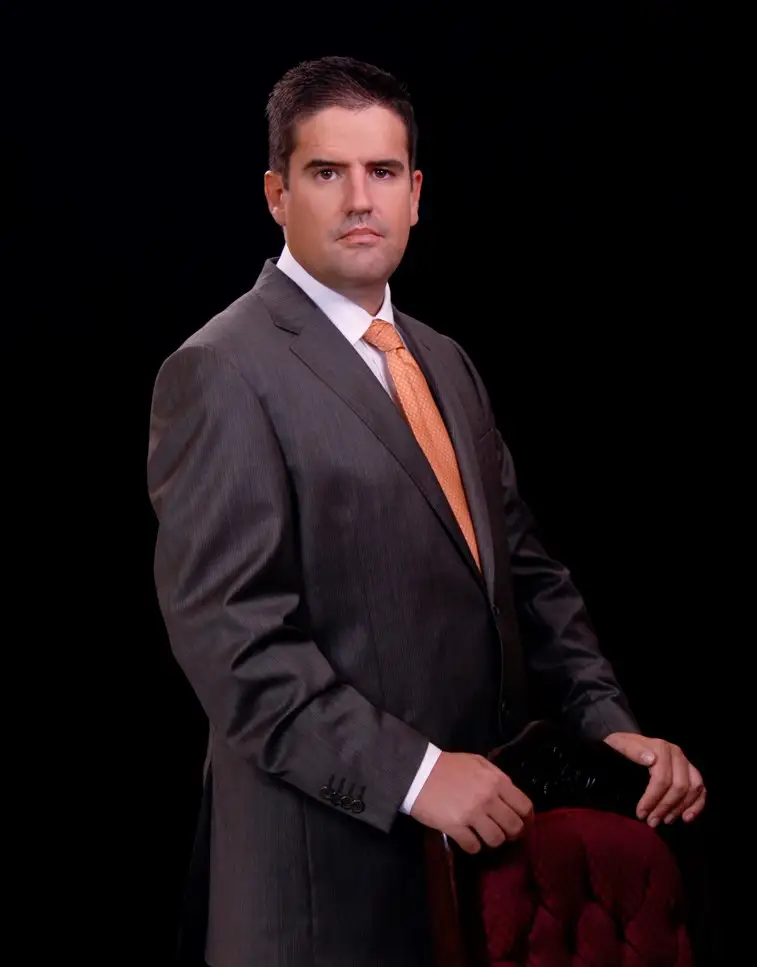Debt collections and defenses in Costa Rica.
Debt recovery in Costa Rica is a legal service that I can help you with. For example, perhaps you acted as a lender, made a loan, and need help with debt collection. Or maybe you got in debt and need assistance with a legal defense? Chances are you will be looking for debt lawyers at some point. I can help you with this. I am a debt attorney and an expert in civil procedures and litigation.
Is there debtor´s prison in Costa Rica?
No. And there´s no such thing as contempt or court for failure to pay. Article 38 of the Costa Rican Constitution bans debtor´s prison. There is however, an exception to this rule: breach of alimony and child support payments.
What type of guarantees do lawyers in Costa Rica promote?
Two basic debt guarantees are commonly used in Costa Rica: Real Guarantees and Personal Guarantees. In case of payment noncompliance, the Courts can uphold your guarantee. You can choose two different paths: the individual debt collection legal path or through universal loan collections. In this website, I will focus on the individual debt collection path. This legal litigation alternative is through the Civil Courts. A different kind of civil process is available for each type of guarantee. These civil actions apply to debts only. For example, if you have a contract, and there was a breach of contract, you must file your claim in an ordinary civil process.

Can you explain what "real guarantees" are?
Real guarantees are rights over somebody else´s property rights. (Ius in re aliena.) Examples of real guarantees are mortgages, an encumbrance on somebody else´s real estate property, or real rights, such as a usufruct. There are real guarantees, however, that are autonomous, such as the mortgage bond.
Pledges, or “prendas” in Spanish, can be placed on mobiliary assets like vehicles. With the new law of “Mobiliary Guarantees,” it´s perfectly possible to put a guarantee over a “universality,” such as a herd of cows or a future agricultural crop. Then, in case of payment non-compliance, you can execute the guarantee through a privileged civil process. Lawyers call this process the “Pure Execution Civil Process.”
We lawyers in Costa Rica recommend these individual debt collection alternatives in Costa Rica:

Pre-Trial Debt Recovery:
A good idea to avoid litigation.

Pure Executions
To execute mortgages and pledges.

The Monitory Process
To claim all other types of .
Why is pre-trial debt collection a good idea?
It all depends on the situation. This type of debt collection can have its fruits, and you can avoid litigation altogether. We can contact your debtor and try to find a solution to the situation. If you are the debtor, we can also contact the creditor to find solutions. Remember that in Costa Rica, there are many alternate methods of conflict resolution. They can be used to solve any dispute. After a few conversations, and since we would be in the pre-trial stages, mediation can be fruitful in reaching a settlement.
What is a pure execution civil process?
This civil process is the judicial route for debt recovery regarding real guarantees. You can only access this civil action if the loan was guaranteed with a mortgage or a pledge. You should know that a mortgage is to a property, as a pledge is to a vehicle.
Why is it called a pure execution process?
This civil action is called a pure execution because the creditor does not need to demonstrate his right to the judge as a creditor of the loan. The registered mortgage or pledge opens the way. This process is reserved for a creditor with a registered mortgage or pledge in the Public Registry. Once the lawsuit is filed, the Judge will immediately set a date for auctioning the property or vehicle. After that, the debtor has five days to file a minimal array of defenses: the opposition can be filed because he has already paid the debt (a payment defense exception) or a statute of limitations defense.

How does the auction help with debt collection?
If you have a first-degree mortgage or pledge, you have a privileged position over personal creditors regarding the asset. When the loan is executed, the Judge sets a date for a public auction. An edict is published so that people know about it. The auction will occur in Court, and the higher bidder will become the asset owner. The deposited money will pay your attorney fees, loan interest, and the principal loan amount. If nobody goes to the auction, you can request that the property be allotted to you.
As a debtor, can I pay the loan even if the loan execution process is ongoing?
Yes. As the debtor, you can pay for the loan at any moment, and with it, you can stop the property auction. You can do this by making a deposit in the court´s bank account. However, keep in mind that you must deposit enough to cover the creditor´s attorney fees, interest and principal.
Is there any way to speed up debt collection by avoiding the auction?
Yes and no. You can settle with your debtor, who gives you the mortgaged property or pledged vehicle in payment of the loan. In Spanish, this is called a “dación de pago.” This liberates the debtor completely. Another way to speed things up is through trusts. However, due process must always be observed, and the public auction must always happen. Therefore, any clause that eliminates the need for an auction is null and void. These are called “confiscation clauses” or “pactos comisorios” and are prohibited by law in Costa Rica.
What is the monitory civil process?
This civil process is the judicial route for debt recovery regarding personal guarantees. They are used for debt collection in cases with straightforward unconditional, money-owing clauses. They are also used for loan recovery with executive titles. Executive titles include checks, promissory notes, and certifications by certified public accountants for credit card debt collections. The promissory note is an executive title widely used by lawyers in Costa Rica as a personal loan guarantee.
Why is it called a monitory process?
Because of its inverted form, a traditional civil process begins with a lawsuit, a response, a hearing to evacuate evidence, and a final resolution that can be appealed. In a monitory process, however, all of this gets inverted. This is because the plaintiff files the lawsuit and attaches the corresponding title to demonstrate the “monetary obligation.” The Judge will immediately emit sentencing, called a “monitory resolution,” giving the debtor several days to pay for the obligation. If he doesn´t, and there is no opposition, the monitory resolution becomes final and opens the way to execute it. All of the debtor´s assets can be prosecuted.

Why are executive titles important for debt collection in a monitory process?
Because if an executive title is used, you can request liens over the debtor´s assets. Liens are called “embargos” in Spanish. So if you have an executive title, your lawyers can request liens over the debtor´s assets. This can be done immediately with your monitory lawsuit. If you don´t have an executive title, you must wait until the monitory resolution becomes final.
As the loan debtor, do I have the possibility to defend myself in this debt recovery action?
Yes, of course! Due process is always observed. Once you get notified of the monetary lawsuit and the monitory resolution, you can file an opposition to it all. The opposition must be adequately founded, or it will be rejected “ad portas.” (Ad portas means “at the doorway.”) Oppositions can be based on legal defenses, also called “exceptions.” Some legal defenses include “the payment exception,” the statute of limitations exception, and even the lack of enforceability exception, to name a few. Your lawyers in Costa Rica must know how to make proper civil defenses in these types of lawsuits. If your defenses are rejected, you can always appeal the decision, per basic due process principles of law.
Dr. Christopher Pirie.